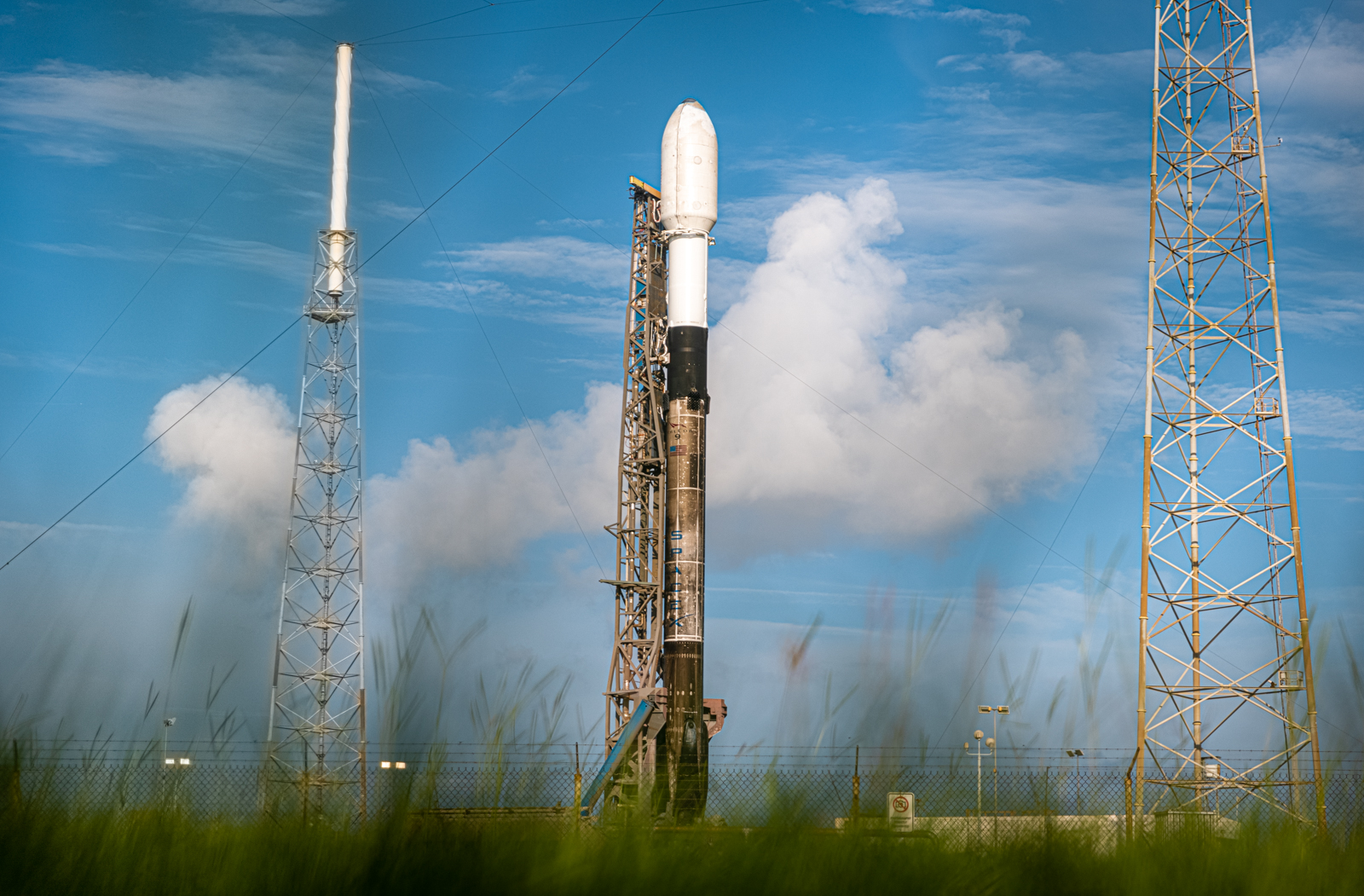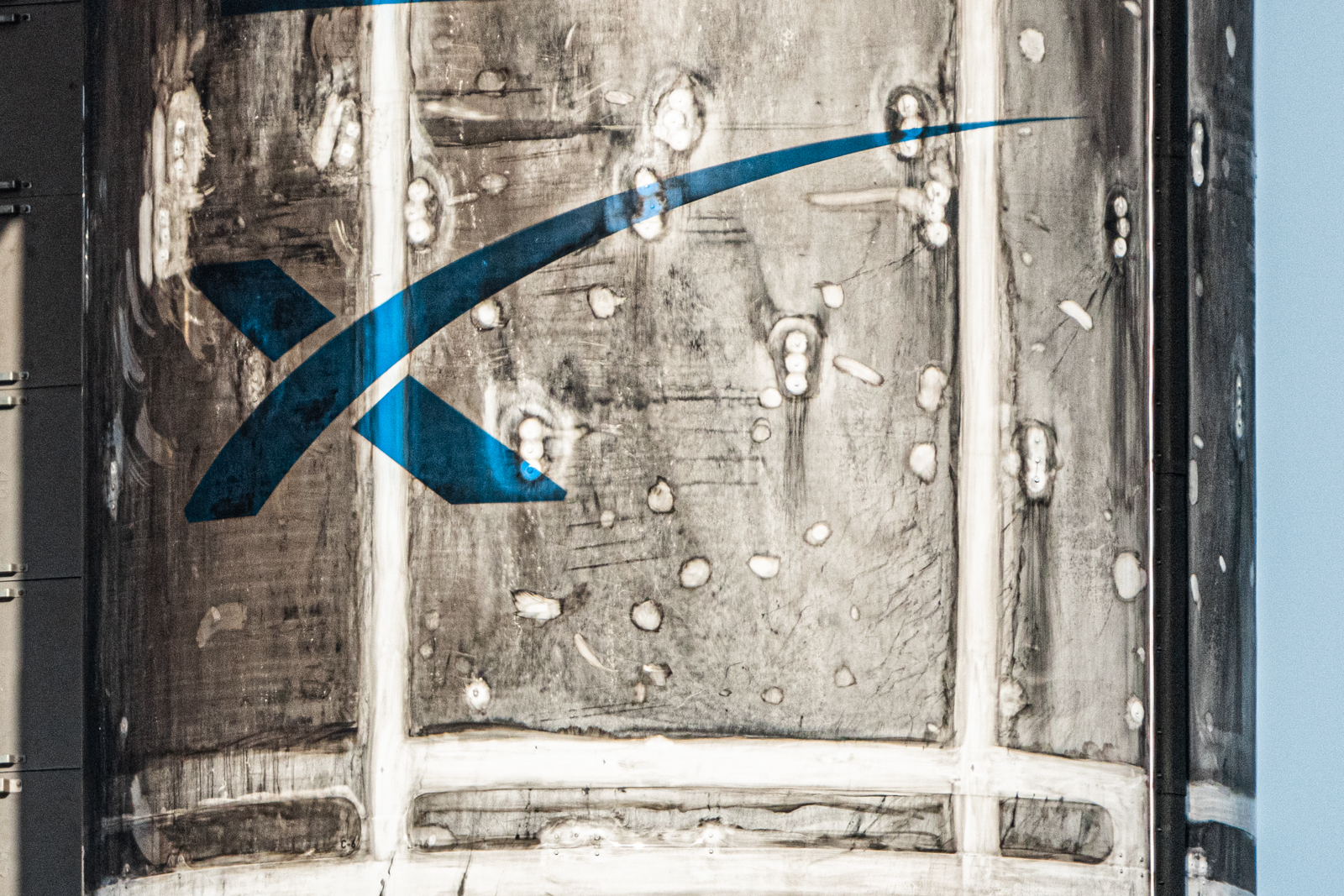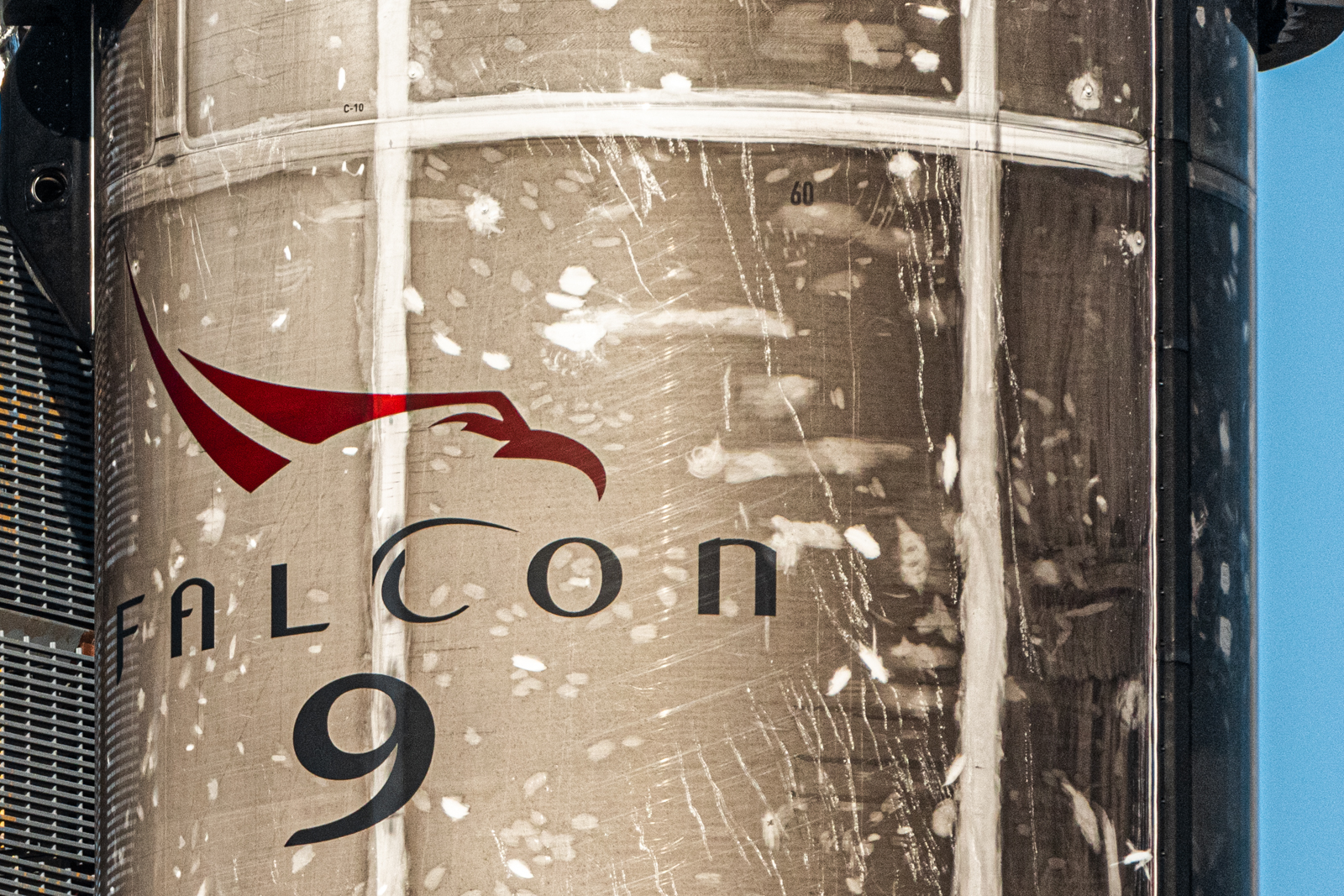 SpaceX's second Transporter mission is scheduled to lift off at 2:56 pm EDT, carrying 88 spacecraft on a southerly trajectory from Cape Canaveral Space Force Station.Trevor Mahlmann
SpaceX's second Transporter mission is scheduled to lift off at 2:56 pm EDT, carrying 88 spacecraft on a southerly trajectory from Cape Canaveral Space Force Station.Trevor Mahlmann After dropping off the second stage, the sooty sailor (B1060) will fly itself back to Cape Canaveral to perform a propulsive landing at LZ-1.Trevor Mahlmann
After dropping off the second stage, the sooty sailor (B1060) will fly itself back to Cape Canaveral to perform a propulsive landing at LZ-1.Trevor Mahlmann Eight-time-flown soot.Trevor Mahlmann
Eight-time-flown soot.Trevor Mahlmann
3pm ET Tuesday update: The countdown clock got to T-11 seconds on Tuesday afternoon before SpaceX called a hold to the launch of its Transporter-2 rideshare mission. The scrub was necessitated by a range issue caused by an airplane in the launch zone. The company will now turn around the vehicle for another launch attempt on Wednesday afternoon.
SpaceX founder Elon Musk was not happy with the situation.
Unfortunately, launch is called off for today, as an aircraft entered the “keep out zone”, which is unreasonably gigantic.
There is simply no way that humanity can become a spacefaring civilization without major regulatory reform. The current regulatory system is broken.
— Elon Musk (@elonmusk) June 29, 2021
Original post: SpaceX is preparing to launch its second dedicated rideshare mission for its Falcon 9 rocket, named Transporter-2, from Cape Canaveral Space Force Station on Tuesday afternoon.
The mission will carry a total of 88 small satellites from a variety of customers, including private companies such as ICEYE and Umbra, as well as the US government's Space Development Agency.
Part of the Department of Defense, the Space Development Agency seeks to advance the ability of the nation to get its satellites into space in a timely and cost-efficient manner. The agency is launching five satellites on the Transporter-2 mission at a cost of about $21 million.
“This figure represents a tremendous value to the government for four satellites and a payload," an agency spokesman said. "The invaluable information gathered from these experiments will far outpace the monetary investment made up front as we begin to lay the foundation for the national defense space architecture.”
SpaceX developed the rideshare program for its Falcon 9 rocket to increase the number of purely commercial launches performed by the workhorse booster. The company advertises access to Sun Synchronous Orbit for as little as $1 million for 200 kg. SpaceX plans to launch such rideshare missions about every four months, depending on demand.
The rideshare service offered by SpaceX—which has the world's lowest-cost, only fully reusable orbital rocket in the Falcon 9—helps the company fill out its manifest. The program also leverages the investment SpaceX put into developing reusability. Tuesday's launch attempt will fly to orbit on a first stage that has already flown seven times. The anniversary of the rocket's first flight is Wednesday.
However, SpaceX's expansion into small-satellite launches has put considerable pressure on other companies developing small rockets to deliver satellites into orbit. These companies can offer dedicated launches to specific orbits, but the service comes at a price. For example, Rocket Lab's Electron rocket can deliver about 300 kg into low Earth orbit for about $7.5 million. Virgin Orbit's LauncherOne can deliver up to 500 kg to Sun Synchronous Orbit for about $15 million. Neither of these vehicles can offer the reliability of a Falcon 9, however, which has more than 100 consecutive successful launches.
Weather conditions look favorable for Tuesday's launch attempt, which has a nearly hour-long launch window that opens at 2:56 pm ET (18:56 UTC). The booster will return to the launch site instead of making a drone ship landing due to the spare fuel capacity on board the Falcon 9 for this mission.
Listing image by Trevor Mahlmann
Article From & Read More ( SpaceX to launch second rideshare, pressuring small-launch industry - Ars Technica )https://ift.tt/3ha4CCJ
Science
No comments:
Post a Comment